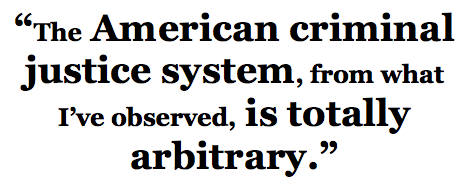
CK: I got very interested in the advocacy work being done by Middle Ground Prison Reform in Arizona, and hoped the book would circulate among prison activists as well as in the art and lit world. I don’t think that’s happened. Obviously Catt’s actions represent small and partial solutions. I have huge admiration for people who are wholly dedicated to this kind of urbanist work, reclaiming abandoned districts and towns. Theaster Gates is famously involved in this in Chicago, and there are hundreds of lesser-known projects being done along similar lines. But Catt isn’t a professional activist, she’s more of a bumbling Buddhist, hoping to do some small good rather than bad. Catt seems somewhat naive, but I think people who expect absolute clarity anywhere are even more so.
AR: There’s so much anxiety pulsing beneath the landscape of Summer of Hate. I was really struck by the things that seemed completely counterintuitive but also strangely true, like Paul’s assertion that if he’d just stayed on crack he’d be fine, or the idea that the Paris Hilton sex tape somehow caused the War in Iraq. The weirdness of it all felt like an apt rendering of cultural forces at work during the Bush years. Is a time lapse necessary to process a cultural atmosphere?
CK: Actually, I’m a big fan of the topical. I wrote a lot of the notes for Summer of Hate during the years the book describes. There is the idea that “history” can only be viewed retrospectively, but history is what we are living now.